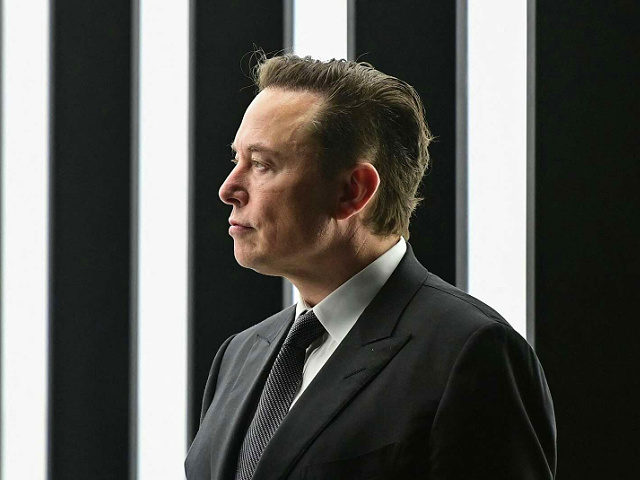
Elon Musk’s brain-computer interface startup, Neuralink, is facing fresh controversy as it secures approval for human clinical trials, with emerging reports unveiling disturbing details about animal deaths during experiments and allegations of misleading investors about the safety and developmental history of the device.
Popular Science reports that Neuralink has recently received the green light to initiate a six-year-long human clinical trial, focusing primarily on quadriplegic volunteers, especially those grappling with spinal column injuries and ALS. However, the air of anticipation is tainted with serious concerns and allegations surrounding the company’s research practices and the safety of its groundbreaking technology.

Elon Musk puts his hands up (Chesnot / Getty)
A detailed investigation has brought to light the unsettling circumstances surrounding the deaths of monkeys used in Neuralink’s preliminary experiments. Elon Musk has staunchly denied that the deaths were a direct consequence of the implants, maintaining that the chosen test subjects were “close to death already.” However, these assertions are contradicted by accounts revealing severe complications, including chronic infections, paralysis, and brain swelling, experienced by the test subjects, necessitating euthanasia.
Wired provided some details on the situations some of the test animals were put in, writing:
For example, in an experimental surgery that took place in December 2019, performed to determine the “survivability” of an implant, an internal part of the device “broke off” while being implanted. Overnight, researchers observed the monkey, identified only as “Animal 20” by UC Davis, scratching at the surgical site, which emitted a bloody discharge, and yanking on a connector that eventually dislodged part of the device. A surgery to repair the issue was carried out the following day, yet fungal and bacterial infections took root. Vet records note that neither infection was likely to be cleared, in part because the implant was covering the infected area. The monkey was euthanized on January 6, 2020.
Describing the treatment of another animal, Wired reported:
Additional veterinary reports show the condition of a female monkey called “Animal 15” during the months leading up to her death in March 2019. Days after her implant surgery, she began to press her head against the floor for no apparent reason; a symptom of pain or infection, the records say. Staff observed that though she was uncomfortable, picking and pulling at her implant until it bled, she would often lie at the foot of her cage and spend time holding hands with her roommate.
Animal 15 began to lose coordination, and staff observed that she would shake uncontrollably when she saw lab workers. Her condition deteriorated for months until the staff finally euthanized her. A necropsy report indicates that she had bleeding in her brain and that the Neuralink implants left parts of her cerebral cortex “focally tattered.”
Ryan Merkley, the director of research advocacy for a medical ethics committee focusing on animal rights, has expressed grave concerns regarding the safety of Neuralink’s device. “Patients should have serious concerns about the safety of Neuralink’s device,” Merkley warns, highlighting well-documented reports of hasty and careless experiments conducted on animals. The committee, which boasts over 17,000 doctor members, has urged potential Neuralink volunteers to reconsider their applications seriously.
The U.S. Food and Drug Administration (FDA) had previously echoed these concerns, denying Neuralink’s requests to commence human clinical trials. The concerns were primarily centered around the potential migration of the implant’s electrodes within the brain and complications arising from the removal of the device, potentially causing irreversible brain damage. Despite these initial reservations, FDA approval was eventually granted in May 2023.
The allegations extend beyond the realm of medical ethics, with the Securities and Exchange Commission (SEC) receiving a complaint urging an investigation into Neuralink for purported efforts to mislead investors about the developmental trajectory and safety of the device. If the SEC decides to act, it would mark the third federal investigation into Neuralink’s procedures, with previous inquiries focusing on internal staff complaints and allegations of unsafely transporting antibiotic-resistant pathogens.
Read more at Popular Science and Wired here.
Lucas Nolan is a reporter for Breitbart News covering issues of free speech and online censorship.
